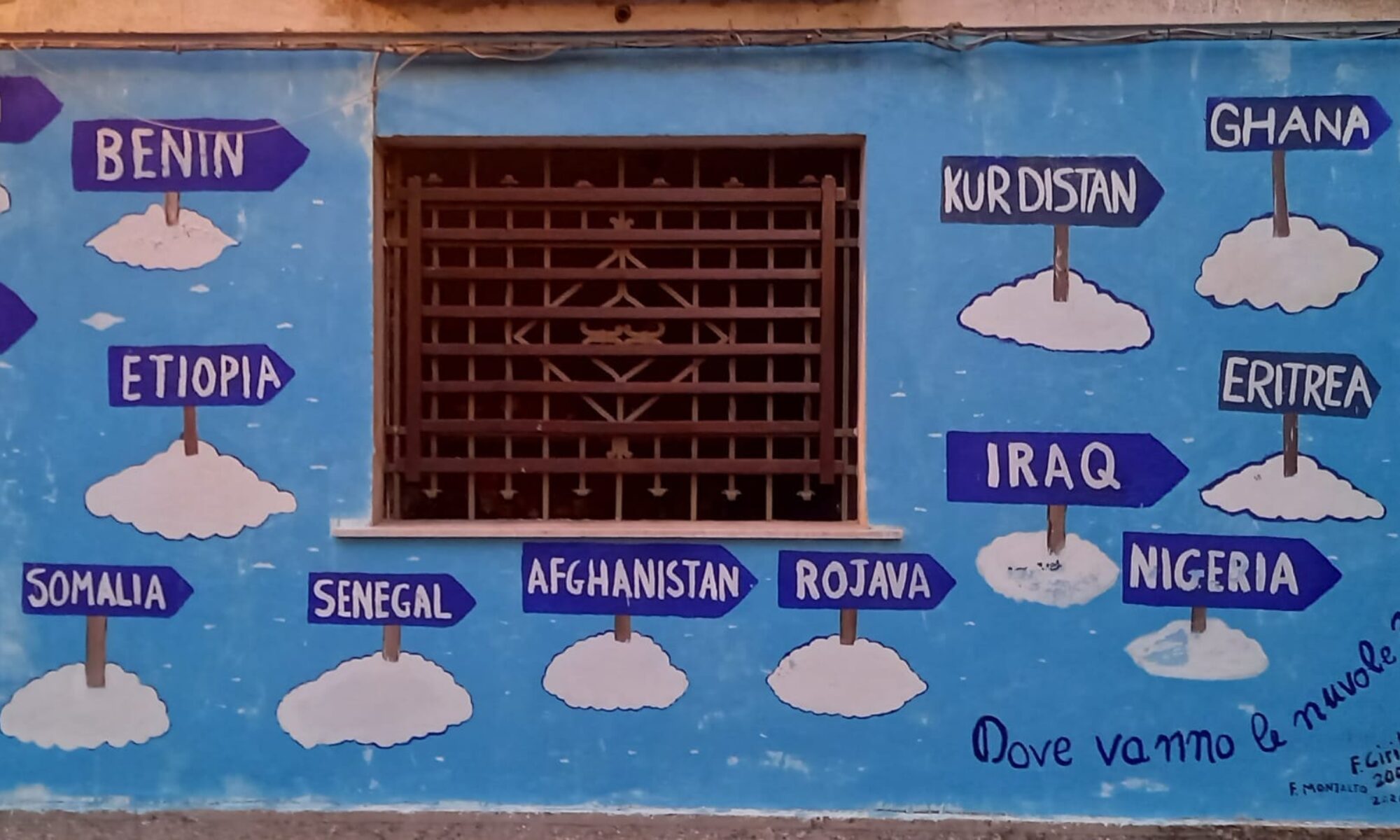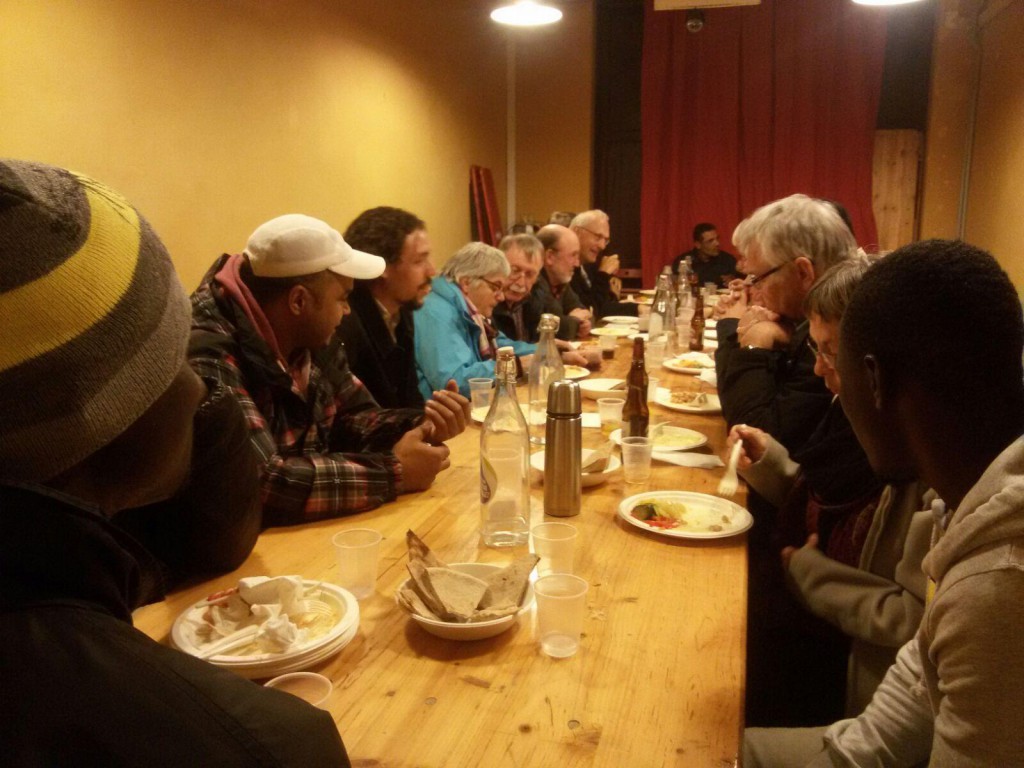Un settimanale di sinistra con sede a Zurigo www.woz.ch che esiste da 35 anni ed è gestito da una cooperativa organizza viaggi di studio per le sue lettrici e i suoi lettori nei Paesi Baschi, in Francia, in Germania e in Italia. Uno di questi gruppi in viaggio in Italia, che ha affrontato il tema della sinistra italiana dalla Liberazione ad oggi, dopo vari incontri ha terminato il percorso venerdì 16 ottobre a Casa Bettola con un’iniziativa di Cucine senza Frontiere sostenendo gli abitanti degli stabili occupati di Via Gramsci e Via Gorizia. La cena, a cura degli abitanti delle case, è stata un momento importante di approfondimento e di racconti dei profughi che fuoriusciti dai progetti di accoglienza si sono ritrovati senza casa e hanno deciso di riappropriarsi del diritto all’abitare occupando degli stabili abbandonati nella città di Reggio Emilia. La serata è stata occasione di scambio e confronto di esperienze di lotta ma anche un gesto di solidarietà concreta, grazie al quale quest’inverno sarà un po’ meno freddo perché il contributo offerto per la cena andrà a sostenere le spese della legna per riscaldare le case occupate.
European solidarity for Cucine Senza Frontiere (kitchens without borders)
The WOZ – Die Wochenzeitung, a leftist weekly magazine based in Zurich (www.woz.ch), funded 35 years ago and managed by a cooperative, has been organizing study tours for its readers in the Basque Country, France, Germany and Italy.The last week, one of these groups was on its journey in Italy to deepen the history of the Italian left from the Liberation to present days and to meet several protagonists and activists.
At the end of their intense meeting agenda they decided to spend an evening in Casa Bettola, enjoying the dinner prepared by Cucine Senza Frontiere and willing to know the experience of the squats for housing purpose in Reggio Emilia.
Cucine Senza Frontiere is an initiative set up by the inhabitants of the squats in Via Gorizia and Via Gramsci, in order to address the basic needs and problems posed by a squatting. The inhabitants are refugees and asylum-seekers that, after the institutional host projects ended, found themselves homeless and decided to claim their right of housing by occupying two empty buildings in Reggio Emilia.
That event was an interesting occasion for exchange of experiences and discussion on political struggles. But it was also a gesture of real solidarity, thanks to which the coming winter will be a bit less freezing: the contributes collected for the dinner will be used for buying wood to warm the houses.

